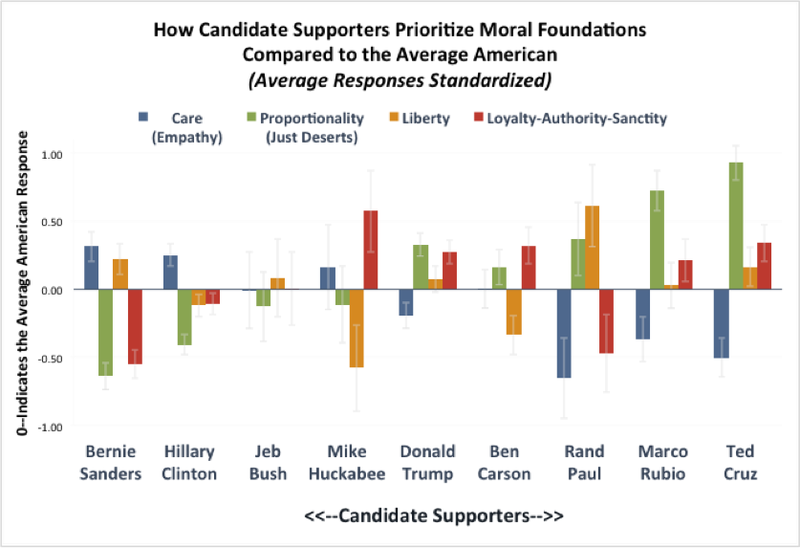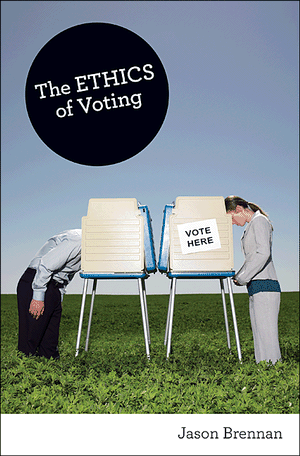
Politico Magazine ran an article a few weeks ago about overcriminalization in the US that was interesting in two ways. The first was the recitation of statistics and examples that show just how ridiculously overcriminalized our society has become. We have 5% of the world’s population. We have 25% of the worlds prisoners. Think about that: one out of every four human beings in a jail is in an American jail. That seems insane. What’s more, the sheer scope of our criminal code is absurd:
Congress creates, on average, more than 50 new criminal laws each year. Over time, this has translated into more than 4,500 federal criminal laws spread across 27,000 pages of the United States federal code. (This number does not include the thousands of criminal penalties in federal regulations.)
Not that we’re just addicted to criminal statutes, by the way. In How the Stock Market Works, Professor DeGennaro notes that:
The tax code contained just 11,400 words in 1914, one year after the Constitution was amended to permit the federal government to levy an income tax. It didn’t stay that way. Forbes contributor Kelly Phillips Erb said that the code was up to about 4,000,000 words by January 2013. That’s about four times as long as all of the Harry Potter novels combined. And you know what? That vastly understates the complexity of the US tax system. The code itself is just the law that tells the IRS what to do. The IRS has to devise regulations to put the law into practice. I doubt anyone really knows how many words are in the regulations, and the story gets worse.
The Forbes article he referred to is here, and it includes another jarring fact:
Since 2001, Congress has made nearly 5,000 changes to the Tax Code. That’s more than a change per day.
At this point we are way, way, way past the point where any normal human being could possibly be certain that they had not violated the law even if they made it their full-time job to do so. This is what led Harvey Silverglate to write his book Three Felonies a Day, suggesting that is how many felonies a typical American commits on a daily basis without ever knowing it. Sound crazy? So do some of the violations summarized in the Politico piece:
This explosion of criminal laws has led to imposing liability on activities that ordinary citizens would have no reason to believe would be criminal such as converting a wild donkey into a private donkey, bathing in the Arkansas Hot Springs National Park without a doctor’s note, and agreeing to take mail to the post office but not dropping it off. It has led to criminal liability for amateur arrowhead collectors who had no idea their hobby could be a federal crime, as well as criminal charges and a conviction for a former Indianapolis 500 champion who got lost while snowmobiling during a blizzard and unwittingly ended up on federal land.
So let me make one point (something not brought up in the article): the way Americans think about our government has a serious, serious flaw. We tend to view the job of legislators and the executive to get things done. Which, for most purposes, means to pass laws. When government doesn’t pass enough new laws you hear about gridlock and the assumption is that our government is defective. It is as though Americans have this bizarre picture in their minds that Washington DC is a factory for churning out legal statutes, and if we don’t get our quota than there’s something wrong with the factory. Why are more laws automatically better? Clearly we have too many laws already. Not every problem needs to be tackled by adding new laws. We can also think about repealing, reforming, consolidating, and streamlining the laws and the agencies we already have. But nobody gets elected by making enemies, and so our obsession with manufacturing new laws continues.[ref]This is not a politically neutral point, by the way. I still remember my high school government teacher explaining what he clearly thought was a brilliant theory that Republican politicians are systematically worse than Democratic ones because small government emphasis leads them to use their authority less. The implicit assumption was that politicians are better when they use their authority as frequently and extensively as possible. At the time it seemed off to me, but I couldn’t then express why.[/ref]
Here’s the thing, though, the average law-abiding, middle-class, educated American doesn’t have that much to fear from overcriminalization. Sure, you might get lost in a blizzard and end up on federal land and get slapped with a criminal charge, but for the most part if your life is more or less together before such a freak accident occurs, you can probably depend on your savings, education, friends and families, etc. to survive the ordeal. In this way, breaking the law (on accident) is a lot like having your house burn down or losing your job or other life emergencies: they are the biggest threat to the most vulnerable.
And that’s the second interesting thing about this article. It is written by Charles G. Koch and Mark V. Holden. Yes, one of the infamous Koch Brothers (Holden is General Counsel and Senior Vice President of Koch Industries, Inc.) And yet the primary point of the article is that overcriminalization is basically a form of systmatic, state-oppression of the poor and vulnerable. For example:
African-Americans, who make up around 13 percent of the U.S. population but account for almost 40 percent of the inmates, are significantly affected by these issues. According to Harvard sociologist Bruce Western: “Prison has become the new poverty trap. It has become a routine event for poor African-American men and their families, creating an enduring disadvantage at the very bottom of American society.”
Now, even if you’re very skeptical and you think that that Koch Brothers are just pretending to care about the African-American community, fine: you should still read the article. Whatever you think of their motives[ref]I, for one, like to give people the benefit of the doubt.[/ref], the fact remains that they have presented a very good argument for why overcriminalization is hurting America’s poor and even included a 6-step plan to fix it. Check it out.
You might think that politics is an area where being analytical is especially useful. If you do, well, I have news for you: Libertarians measure as being the most analytical political group. That’s according to something called the cognitive reflection test, which is designed to measure whether an individual will override his or her immediate emotional responses and give a question further consideration. So if you aren’t a libertarian, maybe you ought to give that philosophy another look. It’s a relatively exclusive club, replete with people who are politically engaged, able to handle abstract arguments and capable of deeper reflection.





